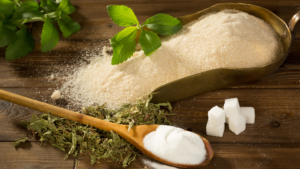
Corn is as American as apple pie. Its golden kernels dot our salads, snack foods and candies. Corn-fed meats fill grocery store coolers. And corn byproducts make their way into many pre-packaged items as thickeners and sweeteners. Given corn’s ubiquitous presence in the modern food landscape, it’s worth looking at whether this popular plant is truly good for us, or if we’ve simply become addicted to its abundance and convenience as a crop.
On the surface, corn seems wholesome enough. Its starch provides quick energy and the kernels supply vitamins and minerals. However, the wider impacts of corn’s broad use in our food system reveals some troubling nutritional and ethical concerns. Here are some of the key reasons why over reliance on corn may be harmful.
Nutritionally Bankrupt
First, corn’s lopsided nutritional profile deserves scrutiny. Though corn contains carbohydrates, its micronutrient content is low. Essential fatty acids, vitamins A, C and B complex, zinc and other minerals are lacking. Corn also contains anti-nutrients like phytates that bind to minerals, inhibiting nutrient absorption. Relying on corn risks shortchanging intake of key micronutrients.
Blood Sugar Nightmare
Additionally, corn’s carbohydrates are quickly converted to glucose, causing surges in blood sugar. Those with diabetes or insulin resistance should limit high glycemic foods like corn. But even for healthy individuals, making corn a staple risks promoting fat storage and metabolic abnormalities.
GMO Gamble
Most corn grown today is genetically modified. While some argue GMOs are safe, others point to concerning rat studies showing organ damage and tumors in animals fed GM corn. Without long term human trials, the verdict on GMOs remains unclear. This uncertainty around GM corn’s effects on health should prompt caution.
Omega Imbalance
Corn oil is high in omega-6 polyunsaturated fats. Some omega-6s are healthy. However, overconsumption compared to omega-3 fats found in fish oils tilts the scales towards bodily inflammation. With corn oil so widely used, it’s easy to eat far more omegas-6s than ideal for quelling chronic disease risk.
When Cows Eat Corn
Cows have a complex four-chambered stomach specialized for digesting fibrous grasses. But conventionally raised beef cattle spend the latter part of their lives in feedlots eating a corn-dominant diet to fatten them up quickly. This presents several health and nutritional issues.
The lesson – a cow’s natural diet is grass, not corn. Choosing pasture-raised organic beef provides meat higher in omega-3s and antioxidants, without the ethical issues of feeding corn to cows ill-equipped to handle large amounts of starch and sugar. The extra cost is worth it for the added nutrition and humane practices.
Allergy Alarms
And for a small number of people, corn allergies can cause significant reactions including cramps, vomiting, and anaphylaxis. Complete avoidance is necessary for those with corn allergy. For others, inflammation from corn intolerance may emerge more subtly over time.
Doritos are not ideal nutritionally either. Eating large servings may cause digestive discomfort due to high fat, low fiber, and rapid carb absorption. Doritos and other heavily processed corn chips are hard to fully digest, but the details need more nuance:
- The high fat and sodium content of Doritos can delay gastric emptying – the rate at which food leaves the stomach. This slows overall digestion.
- The corn used in Doritos has been highly processed, breaking down the cellular structure of corn. This makes it faster digesting than whole corn, which increases blood sugar spikes.
- However, the seasoning, oils, and processing used to make Doritos reduces the fiber content compared to whole corn. Fiber helps food move through the digestive tract.
- So while the corn flour in Doritos digests quickly, some of the seasoning and oil may remain in the stomach longer before being fully broken down.
- The lack of fiber and fast spike of carbs and fat can potentially lead to bloating and discomfort in some people when eating a lot of Doritos.
- But for most people having a small serving, the food is still generally digested and absorbed, just at a slower rate than healthier options.
- Claims that Doritos never fully digest are likely exaggerated. The high fat can delay gastric emptying but the stomach acids still break down the corn, oils and protein over time.
Re-Assessing Corn
What should the average consumer make of corn’s potential pitfalls? Complete avoidance goes too far given corn’s culinary versatility. But greater prudence around its consumption seems warranted. When possible, choose organic corn products to avoid GMOs. Limit processed snack foods laden with corn. Sparingly use high omega-6 cooking oils. Opt for pasture-raised meat when affordable. And count corn more as an occasional side, not a dietary cornerstone.
With increased mindfulness around the breadth of corn’s presence and its impacts, you can better balance this sweet crop’s benefits against its potential for harm. By adjusting the level and sources of corn in your diet, you enrich your nutritional variety. And cast a vote for more sustainable food systems with your spending dollars. So enjoy corn responsibly, in its place among a rainbow of whole foods, to maximize this plant’s upside



